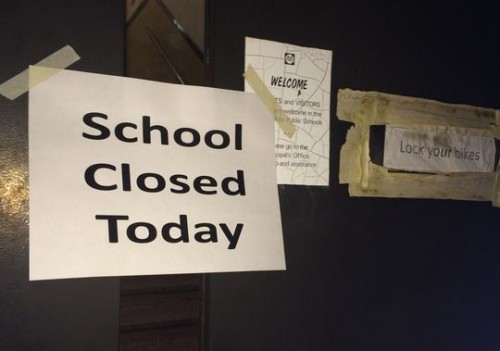On Monday, the Minister of Education and Higher Education, Elias Bou Saab, issued a decision to close public and private schools on Friday 24th April in commemoration of the first centenary of what is called the “Armenian Genocide”! The next day, the entire cabinet and all its ministers declined to the extent to endorse the minister’s decision, which is in fact a factional decision issued by the Free Patriotic Movement (FPM)!
Commenting on this event, which is a dangerous precedent, we state the following:
First: how could a Minister; individually and on the basis of his official capacity, embark upon the recognition of the occurrence of the so-called Armenian Genocide?! And how can the Government as a whole and with all its ministers accepts a decision, of this magnitude and seriousness, taken by a minister alone without referring to it in the first place?! Have the inferiority in all these ministers reached to the extremity that a minister and his movement dragging them to catch up with their factional decision and ratify it?! As they all know the existence of great obscurity and broad debate about the validity of this allegation! And how all these ministers to come to generalize a controversial political opinion of this kind onto all the people and forcing them to close their schools, while this opinion is just a point of view? Whereas their duty was to invalidate this Minister’s decision rather than to endorse it!
Secondly, this decision is a decision that stems from the close-mindedness of the minority. There is a large section of the population in Lebanon, as in worldwide, which denies the occurrence of the so-called the Armenian genocide. Rather, there are those who see the opposite picture completely, and relate that a broad group of Armenians are the ones who started committing massacres against Muslims, and they have betrayed their state, the Ottoman State, who they had been its nationals, when it allied with Russia, which was in a state of war against it during the First World War. And there are those who believe that the massacres occurred in both sides and that they were not at all to the level to be described as genocide. In all cases, the promotion of this historic allegation comes in the context of the consecration of the distorted and artificial stereotype for the Ottoman State, as an aggressive and criminal state. Knowing that this state – and no matter how the adopted history books in Lebanon tarnished its image – is in the view of the wider group of Muslims was their state, for it was the Islamic Khilafah state for more than four centuries. This means deepening the rift between Muslims and others who advocate this reckless decision.
Thirdly: The bloc, which the minister belongs to, made the decision on the backdrop of winning over the Armenian votes in its election regions, especially the Kaza of Matn, where the Armenians are the weighing voting bloc. Thus, the issue for him is the issue of electoral votes and scoring political points over their opponents and the last thing that concerns him is the matter of the alleged genocide. And it seems that the other blocs acted on the same background and decided not to leave the Aounists exclusively possess the electoral votes of Armenians, so they follow suit.
Fourthly: since the door is opened for closing schools on the occasion of the memories of the massacres, then why not also close them at the memories of the massacres committed against Muslims, especially in the present era, such as the Massacre of Sabra and Shatila, the Massacre of Tel Zaatar and the Qana Massacre?! Or those perpetrated in the neighboring area, such as in the memory of the plight of our people in Palestine by the Jews? Or the massacres committed by the Baathist regime in Syria, which claimed the lives of hundreds of thousands and dispossessed millions?! Or the massacres of Muslims in Central Africa, Kashmir, and Burma … or is it that there is a message that Lebanon is been designed to be primarily a country for the minorities?!
Finally, we say, that Lebanon is part of the Islamic world. As it was, and so it will remain. And that thinking with the logic of minority that inflames strife only sows dissension between people. And instead, the politicians rushing to stir the sectarian feelings of the Armenians to achieve their factional goals, they should make them and other communities feel that they are part of the wider community in which they lived side by side with the Muslims, for hundreds of years before the catastrophe of World War I; a war that claimed the lives of millions of various peoples and nations. Whereas, to recall of ambiguous incidents from history and placing them to be the focus of dispute between the people, will only result in more strife, hatred and animosity.
Media of Office Hizb ut Tahrir in Wilayah Lebanon
Wednesday, 3rd Rajab 1436 AH
22/04/2015 CE
No: H.T.L 03/36

